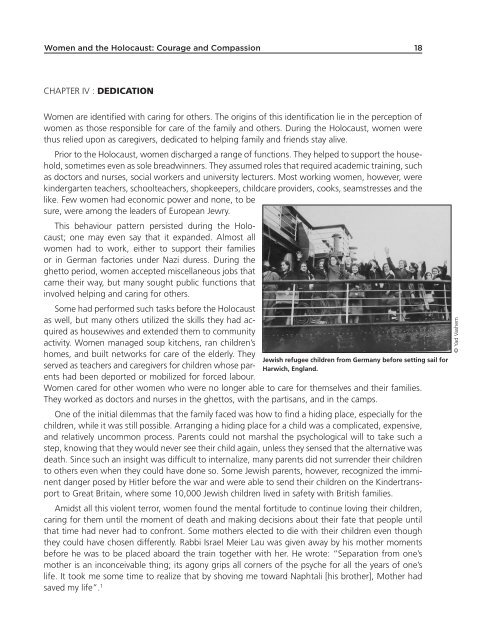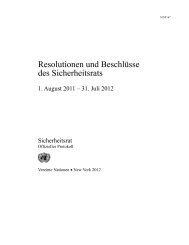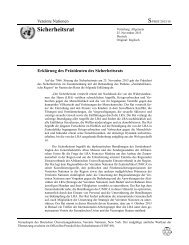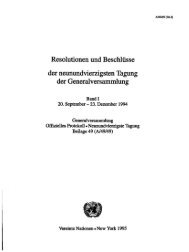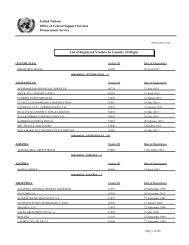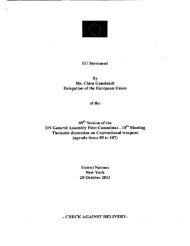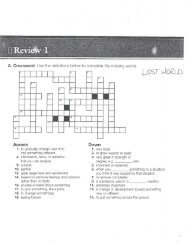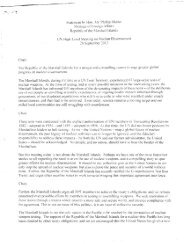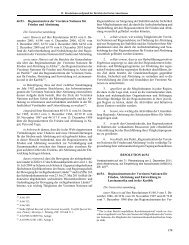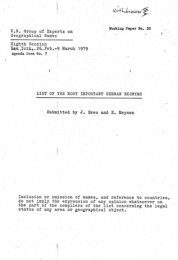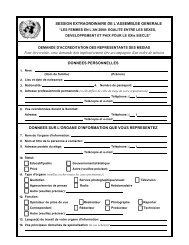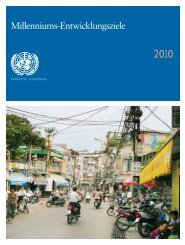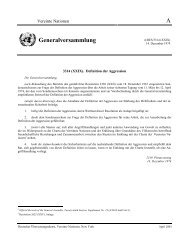Women and the Holocaust: Courage and Compassion
Women and the Holocaust: Courage and Compassion
Women and the Holocaust: Courage and Compassion
Create successful ePaper yourself
Turn your PDF publications into a flip-book with our unique Google optimized e-Paper software.
<strong>Women</strong> <strong>and</strong> <strong>the</strong> <strong>Holocaust</strong>: <strong>Courage</strong> <strong>and</strong> <strong>Compassion</strong> 18<br />
CHAPTER IV : DEDICATION<br />
<strong>Women</strong> are identified with caring for o<strong>the</strong>rs. The origins of this identification lie in <strong>the</strong> perception of<br />
women as those responsible for care of <strong>the</strong> family <strong>and</strong> o<strong>the</strong>rs. During <strong>the</strong> <strong>Holocaust</strong>, women were<br />
thus relied upon as caregivers, dedicated to helping family <strong>and</strong> friends stay alive.<br />
Prior to <strong>the</strong> <strong>Holocaust</strong>, women discharged a range of functions. They helped to support <strong>the</strong> household,<br />
sometimes even as sole breadwinners. They assumed roles that required academic training, such<br />
as doctors <strong>and</strong> nurses, social workers <strong>and</strong> university lecturers. Most working women, however, were<br />
kindergarten teachers, schoolteachers, shopkeepers, childcare providers, cooks, seamstresses <strong>and</strong> <strong>the</strong><br />
like. Few women had economic power <strong>and</strong> none, to be<br />
sure, were among <strong>the</strong> leaders of European Jewry.<br />
This behaviour pattern persisted during <strong>the</strong> <strong>Holocaust</strong>;<br />
one may even say that it exp<strong>and</strong>ed. Almost all<br />
women had to work, ei<strong>the</strong>r to support <strong>the</strong>ir families<br />
or in German factories under Nazi duress. During <strong>the</strong><br />
ghetto period, women accepted miscellaneous jobs that<br />
came <strong>the</strong>ir way, but many sought public functions that<br />
involved helping <strong>and</strong> caring for o<strong>the</strong>rs.<br />
Some had performed such tasks before <strong>the</strong> <strong>Holocaust</strong><br />
as well, but many o<strong>the</strong>rs utilized <strong>the</strong> skills <strong>the</strong>y had acquired<br />
as housewives <strong>and</strong> extended <strong>the</strong>m to community<br />
activity. <strong>Women</strong> managed soup kitchens, ran children’s<br />
homes, <strong>and</strong> built networks for care of <strong>the</strong> elderly. They<br />
served as teachers <strong>and</strong> caregivers for children whose parents<br />
had been deported or mobilized for forced labour.<br />
Jewish refugee children from Germany before setting sail for<br />
Harwich, Engl<strong>and</strong>.<br />
<strong>Women</strong> cared for o<strong>the</strong>r women who were no longer able to care for <strong>the</strong>mselves <strong>and</strong> <strong>the</strong>ir families.<br />
They worked as doctors <strong>and</strong> nurses in <strong>the</strong> ghettos, with <strong>the</strong> partisans, <strong>and</strong> in <strong>the</strong> camps.<br />
One of <strong>the</strong> initial dilemmas that <strong>the</strong> family faced was how to find a hiding place, especially for <strong>the</strong><br />
children, while it was still possible. Arranging a hiding place for a child was a complicated, expensive,<br />
<strong>and</strong> relatively uncommon process. Parents could not marshal <strong>the</strong> psychological will to take such a<br />
step, knowing that <strong>the</strong>y would never see <strong>the</strong>ir child again, unless <strong>the</strong>y sensed that <strong>the</strong> alternative was<br />
death. Since such an insight was difficult to internalize, many parents did not surrender <strong>the</strong>ir children<br />
to o<strong>the</strong>rs even when <strong>the</strong>y could have done so. Some Jewish parents, however, recognized <strong>the</strong> imminent<br />
danger posed by Hitler before <strong>the</strong> war <strong>and</strong> were able to send <strong>the</strong>ir children on <strong>the</strong> Kindertransport<br />
to Great Britain, where some 10,000 Jewish children lived in safety with British families.<br />
Amidst all this violent terror, women found <strong>the</strong> mental fortitude to continue loving <strong>the</strong>ir children,<br />
caring for <strong>the</strong>m until <strong>the</strong> moment of death <strong>and</strong> making decisions about <strong>the</strong>ir fate that people until<br />
that time had never had to confront. Some mo<strong>the</strong>rs elected to die with <strong>the</strong>ir children even though<br />
<strong>the</strong>y could have chosen differently. Rabbi Israel Meier Lau was given away by his mo<strong>the</strong>r moments<br />
before he was to be placed aboard <strong>the</strong> train toge<strong>the</strong>r with her. He wrote: “Separation from one’s<br />
mo<strong>the</strong>r is an inconceivable thing; its agony grips all corners of <strong>the</strong> psyche for all <strong>the</strong> years of one’s<br />
life. It took me some time to realize that by shoving me toward Naphtali [his bro<strong>the</strong>r], Mo<strong>the</strong>r had<br />
saved my life”. 1<br />
© Yad Vashem


